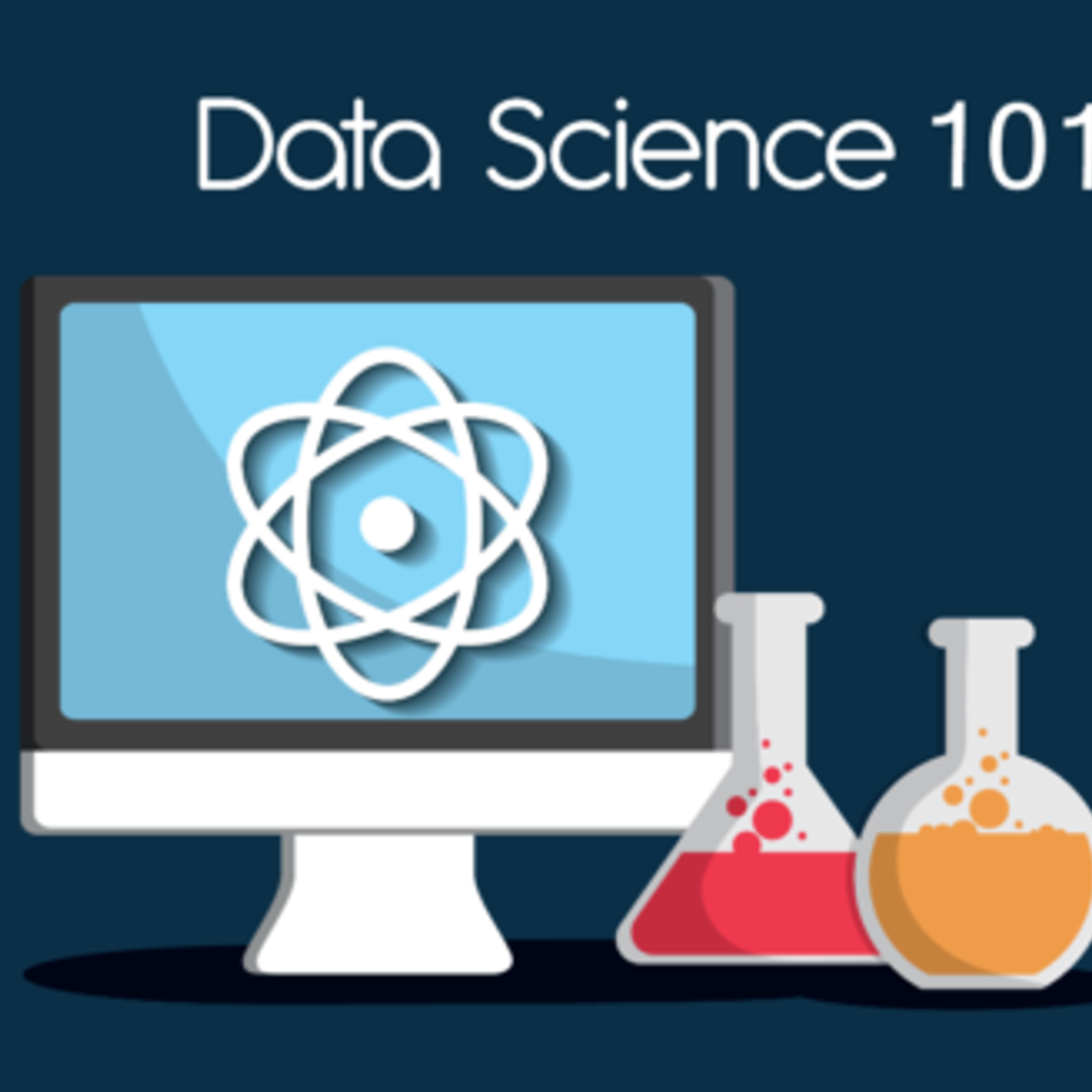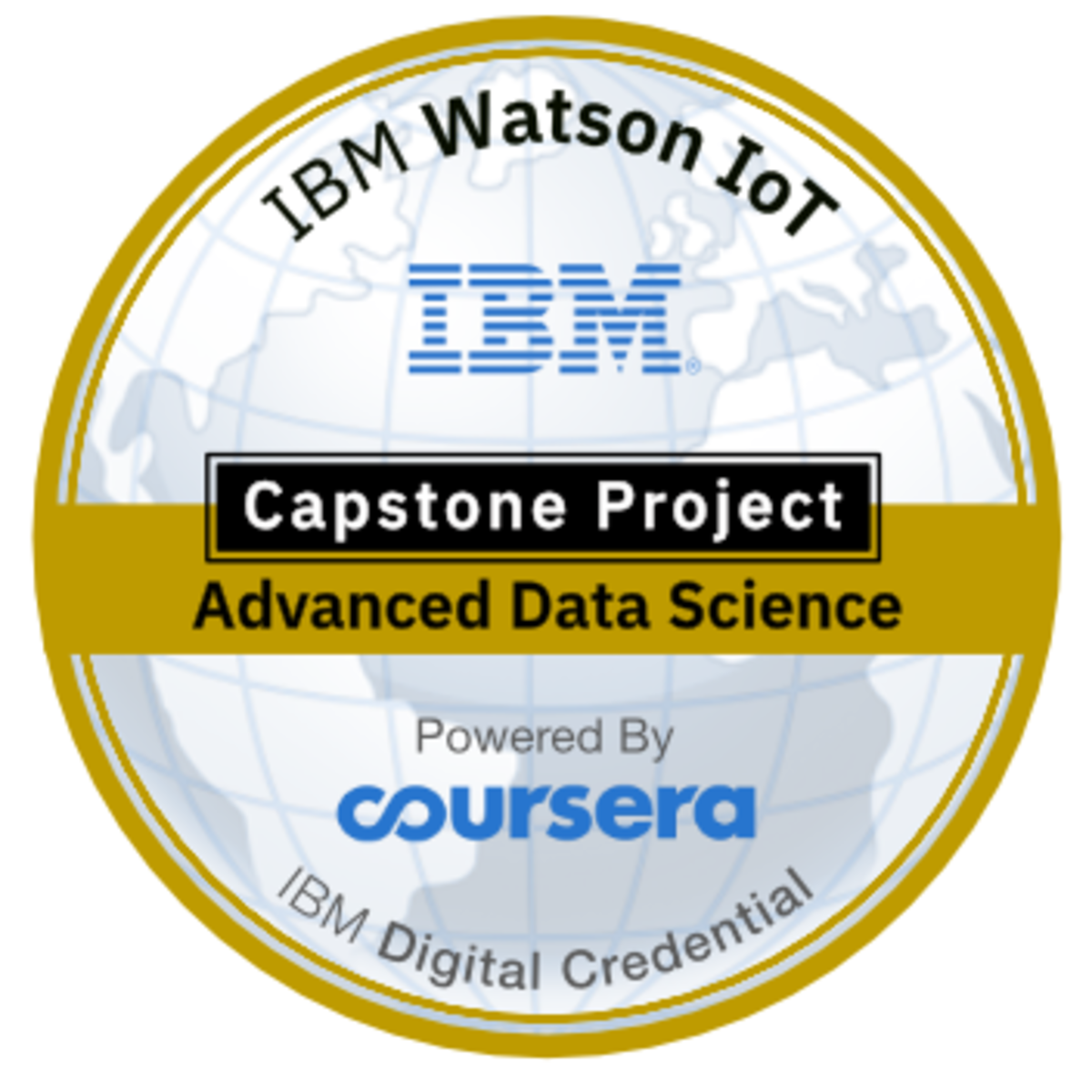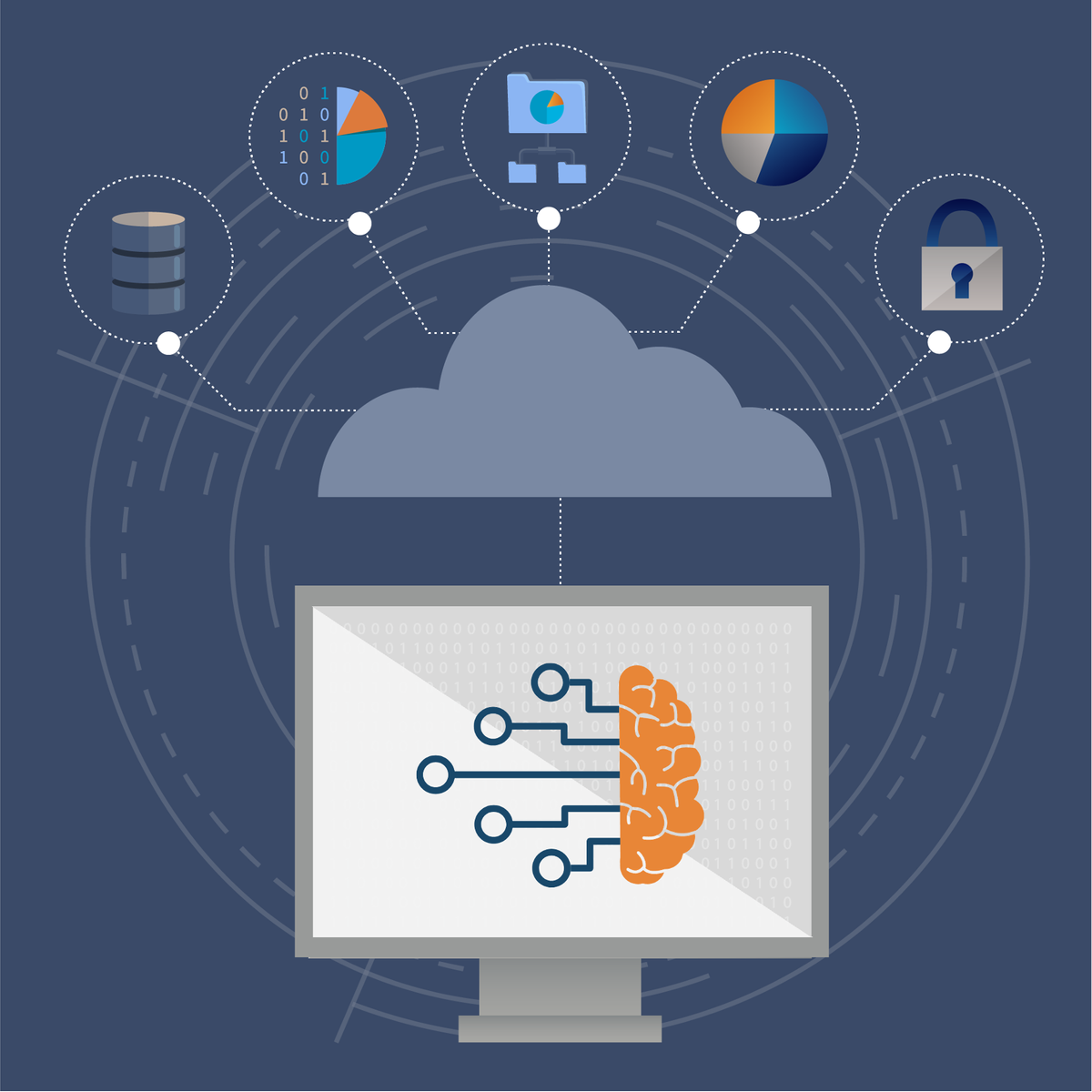Data Science Manager
Data Science Manager
A Data Science Manager leads a team of data professionals, guiding them to leverage data effectively to solve business problems and drive strategic decisions. This role blends technical oversight with people management, requiring a unique mix of skills to foster innovation, ensure project success, and develop talent within the data science function.
Working as a Data Science Manager can be incredibly rewarding. You'll have the opportunity to shape data strategy, mentor skilled individuals, and see the direct impact of your team's work on the organization's success. It involves translating complex technical findings into actionable business insights and collaborating across various departments, making it a dynamic and influential position.
Introduction to Data Science Manager
Data Science Management sits at the intersection of technical expertise, strategic thinking, and leadership. Understanding this multifaceted role is the first step for anyone considering this career path.
Defining the Role and Core Responsibilities
A Data Science Manager is primarily responsible for building, leading, and mentoring a team of data scientists, analysts, and sometimes data engineers. Their core mission is to align the team's work with overarching business objectives, ensuring that data science projects deliver tangible value and address critical organizational needs.
Daily responsibilities often involve project oversight, resource allocation, and stakeholder communication. They translate business requirements into technical projects, guide analytical approaches, review the team's work for quality and rigor, and ensure projects are completed on time and within budget. They also play a key role in fostering a data-driven culture within the organization.
Beyond project execution, Data Science Managers focus on people development. This includes recruiting top talent, providing coaching and mentorship, facilitating continuous learning, managing performance, and ensuring the overall well-being and engagement of their team members.
Distinguishing the Data Science Manager
While closely related, the Data Science Manager role differs significantly from that of an individual contributor Data Scientist or an Engineering Manager. A Data Scientist primarily focuses on hands-on analysis, model building, and extracting insights from data. Their success is measured by the technical quality and impact of their individual work.
In contrast, a Data Science Manager's focus shifts towards enabling the team's success. While they need a strong technical foundation to guide the team and evaluate work, their primary responsibilities involve leadership, strategic planning, project management, and stakeholder communication. Their success is measured by the team's overall output, impact, and growth.
Compared to an Engineering Manager, who typically oversees software development lifecycles and infrastructure, a Data Science Manager deals more with the inherent uncertainty of research and exploratory analysis. They manage projects where the outcomes aren't always predictable, requiring a different approach to planning and execution, often blending agile methodologies with research frameworks.
Where Data Science Managers Work
Data Science Managers are employed across a wide spectrum of industries, reflecting the universal value of data-driven decision-making. Technology companies, from startups to large corporations like Stripe, Google, and Meta, are major employers, leveraging data science for product development, user behavior analysis, and operational efficiency.
Financial services, insurance, and consulting firms also heavily rely on Data Science Managers to lead teams in areas like risk modeling, fraud detection, algorithmic trading, and customer analytics. According to job posting analyses, industries like Computer Systems Design, Management of Companies, Consulting, and Insurance are significant employers of these managers.
Healthcare, retail, e-commerce, telecommunications, and even government agencies increasingly employ Data Science Managers. They guide initiatives ranging from predictive diagnostics and personalized medicine to supply chain optimization, customer segmentation, and policy analysis. The specific applications vary, but the core role of leading data teams to extract value remains consistent.
Educational Pathways to Becoming a Data Science Manager
The path to becoming a Data Science Manager typically starts with a strong technical foundation, often built through formal education, followed by substantial real-world experience. While a specific degree isn't always mandatory, certain educational backgrounds are common.
Foundational Education
A bachelor's degree in a quantitative field is often the starting point. Common undergraduate degrees include Computer Science, Statistics, Mathematics, Economics, Physics, or a related engineering field. These programs provide essential grounding in programming, algorithms, statistical principles, and mathematical reasoning.
Emphasis on courses covering probability, statistics, linear algebra, calculus, data structures, and algorithms is crucial. Strong programming skills, particularly in languages like Python or R, and familiarity with databases (SQL) are fundamental requirements developed during these foundational studies.
While a technical degree is most common, individuals from other backgrounds can transition by supplementing their education with relevant coursework, often through online platforms or bootcamps, focusing intensely on these core quantitative and programming skills.
These courses provide a solid introduction to programming and data handling, which are essential first steps.
Advanced Studies and Specialization
Many Data Science Managers hold advanced degrees, such as a Master's or PhD, in fields like Data Science, Statistics, Computer Science, or Operations Research. While not always a strict requirement, an advanced degree often signifies deeper technical expertise, research experience, and specialized knowledge, particularly valued in research-intensive or highly specialized teams.
Graduate programs delve deeper into machine learning theory, advanced statistical modeling, experimental design, and specialized areas like natural language processing or computer vision. Certifications in specific technologies (like cloud platforms or MLOps tools) or methodologies (like project management) can also be valuable additions, demonstrating specific competencies relevant to managing data science projects and teams.
However, it's crucial to remember that practical experience and demonstrated leadership capabilities often weigh more heavily than degrees alone when hiring for management roles. An advanced degree can open doors but doesn't substitute for proven ability to lead projects and people.
Advanced courses can deepen technical understanding, which is valuable even for managers who may not code daily.
Bridging the Gap: Non-Technical Transitions
Transitioning into data science management from a non-technical background is challenging but not impossible. It requires a dedicated effort to build both the necessary technical proficiency and relevant leadership experience. Individuals might come from fields like business analysis, project management, or domain-specific roles where they worked closely with data teams.
The key is bridging the technical gap. This often involves rigorous self-study, completing online courses or bootcamps focused on programming (Python/R), statistics, machine learning fundamentals, and data manipulation (SQL). Building a portfolio of data science projects is essential to demonstrate these acquired skills.
Simultaneously, aspiring managers should seek opportunities to lead projects, mentor colleagues, and interact with stakeholders in their current roles. Highlighting transferable skills like communication, strategic thinking, and project management is vital. It's a demanding path requiring persistence, but leveraging existing domain expertise combined with newly acquired technical and leadership skills can create a unique value proposition.
For those starting the technical journey, foundational courses are available online.
Online Learning and Skill Development
Online learning platforms offer flexible and accessible pathways to acquire and refine the diverse skills needed for data science management. They cater to self-learners, professionals seeking to upskill, and those supplementing traditional education.
OpenCourser provides access to thousands of courses, enabling learners to tailor their educational journey.
Mastering Core Technical Skills Online
A Data Science Manager must possess a strong conceptual understanding of core technical areas, even if they aren't coding daily. Online courses provide in-depth training in machine learning algorithms, statistical modeling, data engineering principles (like ETL processes and data warehousing), and programming languages essential to the field, such as Python and R, along with their associated libraries (e.g., Scikit-learn, TensorFlow, Pandas).
Platforms offer courses ranging from introductory overviews to advanced specializations taught by university professors and industry experts. Learners can find courses covering Exploratory Data Analysis (EDA), data visualization tools (like Tableau or Power BI), big data technologies (like Spark and Hadoop), and cloud platforms (AWS, Azure, GCP).
These resources allow individuals to build a solid technical foundation or stay current with the latest advancements in the field at their own pace. Selecting courses with hands-on labs and projects helps solidify understanding and practical application.
These courses cover essential programming and data analysis techniques vital for anyone in or aspiring to a data science role.
Consider these books for foundational knowledge.
Cultivating Leadership and Management Abilities
Technical skills alone are insufficient for a management role. Online learning also offers resources for developing crucial leadership and project management competencies. Courses cover topics like Agile methodologies (including Scrum adapted for data science), team leadership, conflict resolution, stakeholder management, strategic planning, and effective communication.
Modules might focus on translating technical insights for non-technical audiences, managing project budgets and timelines, building and motivating high-performing teams, and navigating cross-functional dynamics. Learning about resource allocation, risk mitigation, and performance management tailored to data science projects is also vital.
Supplementing courses with reading materials on leadership theory, technical management, and business strategy can provide a well-rounded perspective. Look for courses that include case studies or simulations relevant to managing technical teams.
These resources focus on the planning, decision-making, and leadership aspects crucial for management.
These books offer valuable insights into building a career and managing data science effectively.
Showcasing Expertise: Portfolio Projects
Theoretical knowledge must be complemented by practical application. Building a portfolio of independent projects is a powerful way to demonstrate acquired skills and problem-solving abilities, especially when transitioning or seeking promotion. Online courses, particularly capstone projects within specializations, provide structured opportunities to work on realistic problems.
Projects should showcase a range of skills, from data cleaning and exploration to model building, evaluation, and potentially deployment or visualization. Choose projects that align with your interests or the industry you're targeting. Documenting the process, methodology, code (e.g., on GitHub), and results clearly is as important as the outcome itself.
A strong portfolio provides tangible evidence of your capabilities during job applications and interviews. It demonstrates initiative, technical competence, and the ability to deliver end-to-end data science solutions – qualities highly valued in potential managers.
Capstone projects offer an excellent way to apply learned skills to a significant problem.
Building Experience: The Road to Management
Becoming a Data Science Manager is rarely an entry-level position. It typically requires years of hands-on experience as an individual contributor (IC), coupled with demonstrated leadership potential. This journey involves mastering technical skills and gradually taking on more strategic and people-oriented responsibilities.
Starting as an Individual Contributor
Most Data Science Managers begin their careers in technical roles such as Data Analyst or, more commonly, Data Scientist. These roles provide the essential foundation of practical experience in data manipulation, statistical analysis, machine learning model development, and communicating technical findings.
During this phase, the focus is on deepening technical expertise, understanding the full data science lifecycle from problem definition to deployment, and learning the specific domain or industry context. Excelling as an IC involves not just technical proficiency but also effective problem-solving, clear communication, and delivering impactful results.
Gaining experience across different types of projects and potentially different business units can broaden perspective and prepare individuals for the wider scope of a management role. Several years of solid IC performance is usually a prerequisite.
These careers represent common starting points on the path towards data science management.
Demonstrating Leadership Potential
While excelling technically is necessary, aspiring managers must also actively seek opportunities to demonstrate leadership capabilities. This can involve mentoring junior team members, leading smaller projects or specific workstreams within larger initiatives, and taking ownership of cross-functional collaborations.
Presenting team findings to stakeholders, contributing to technical strategy discussions, improving team processes, and proactively identifying new project opportunities are also ways to showcase leadership potential. It's about demonstrating influence beyond individual contributions and showing an interest in the team's collective success and direction.
Managers look for individuals who can not only solve technical problems but also guide others, think strategically, and communicate effectively with diverse audiences. Taking initiative in these areas signals readiness for increased responsibility.
This book offers guidance relevant to progressing in a data science career.
Making the Leap: IC to Manager
The transition from a senior IC (like a Senior or Lead Data Scientist) to a Data Science Manager is a significant career shift. It involves moving from primarily doing the technical work to primarily enabling others to do the work. Preparation often involves seeking mentorship from existing managers and potentially taking leadership or management training.
Companies may offer internal pathways or require candidates to apply for management roles formally. The interview process for a manager position typically assesses leadership philosophy, team management skills, strategic thinking, project management capabilities, and conflict resolution abilities, in addition to technical understanding.
Challenges in the transition include letting go of hands-on coding, learning to delegate effectively, managing team performance, and handling administrative tasks like budgeting and hiring. It requires a fundamental shift in focus from individual technical achievement to team enablement and impact.
This book provides insights useful for those navigating career progression.
Career Progression and Role Hierarchy
The career ladder in data science offers paths for both technical experts (individual contributors) and those inclined towards management. Understanding this structure helps in planning long-term career goals.
Typical Career Trajectory
A common path starts with entry-level roles like Data Analyst or Junior Data Scientist, focusing on foundational skills. Progression leads to Data Scientist and then Senior Data Scientist roles, marked by increased autonomy, project complexity, technical depth, and often mentoring responsibilities. The Senior level is often considered a "terminal level" for ICs, meaning one can have a fulfilling career without moving into management.
From a Senior IC position, the path can diverge. One branch leads to technical leadership roles (Principal/Staff Data Scientist), focusing on deep technical expertise and influence. The other leads to management, starting typically as a Data Science Manager overseeing a team.
This Y-shaped structure allows professionals to grow based on their strengths and interests, either deepening technical mastery or developing leadership and strategic capabilities.
record:29v7wy
record:7v2mvi
Advancing Within Management
Once in a management role, further progression involves increasing scope and strategic impact. A Data Science Manager might advance to Senior Manager, overseeing multiple teams or a larger, more complex function. This often involves managing other managers.
Further steps can lead to roles like Director of Data Science or VP of Data Science/Analytics. At these levels, the focus shifts heavily towards organizational strategy, setting the vision for the entire data science function, managing large budgets, influencing executive leadership, and driving data culture across the company.
Progression is marked by a shift from direct team/project management to broader functional leadership, strategic planning, and organizational influence. Strong business acumen becomes increasingly critical at higher management levels.
Beyond Data Science Management
Experience as a Data Science Manager opens doors to various senior leadership roles beyond the direct data science function. The blend of technical understanding, strategic thinking, and leadership is highly valuable across different domains.
Some may transition into broader analytics leadership roles, overseeing Business Intelligence and Data Engineering teams as well. Others might move into technical Product Management, especially for AI/ML-driven products, leveraging their understanding of data capabilities and user needs.
In some organizations, particularly tech companies, senior data science leaders can progress towards roles like Chief Technology Officer (CTO) or Chief Data Officer (CDO), shaping the overall technological and data strategy of the entire enterprise.
Core Competencies for Data Science Managers
Excelling as a Data Science Manager requires a unique blend of technical knowledge, strategic insight, and interpersonal skills. Mastering these competencies is key to effectively leading teams and delivering impactful results.
Balancing Technical Depth and Managerial Acumen
A successful Data Science Manager maintains sufficient technical understanding to guide the team, evaluate approaches, and ask insightful questions, without necessarily being the deepest expert in every algorithm. They need familiarity with statistics, machine learning, programming (Python/R), and relevant tools to effectively oversee projects and mentor team members.
However, this technical knowledge must be balanced with strong managerial skills. This includes people management (hiring, coaching, performance evaluation), project management (planning, execution, risk mitigation), and strategic thinking (aligning projects with business goals, identifying opportunities).
The balance shifts over time; while early-career managers might be more hands-on technically, senior managers focus more on strategy and organizational leadership. The ability to context-switch between technical details and high-level strategy is crucial.
These courses cover advanced technical topics and the strategic application of data science.
These books delve into the practical application and business context of data science.
Effective Stakeholder Communication and Influence
Data Science Managers act as crucial bridges between their technical teams and non-technical business stakeholders. A core competency is the ability to translate complex analytical findings, model limitations, and technical jargon into clear, concise, and actionable business insights.
This involves active listening to understand business needs, managing expectations about project timelines and outcomes, and presenting results in a compelling way that influences decision-making. Strong presentation and storytelling skills are vital for demonstrating the value of the team's work.
Building trust and rapport with stakeholders across different departments (like product, marketing, finance, engineering) is essential for securing resources, ensuring project alignment, and fostering collaboration.
Developing communication skills is essential for managers.
Strategic Resource Management
Managing resources effectively is a key responsibility. This encompasses budgeting for tools, infrastructure, and personnel, as well as prioritizing projects based on potential impact and feasibility. Data Science Managers need to make informed decisions about allocating team members' time and skills to various initiatives.
Strategic hiring is also critical – identifying skill gaps, attracting top talent, and building a well-rounded team with diverse expertise. This includes planning for team growth and advocating for necessary resources, whether it's cloud computing credits, specialized software, or training opportunities.
Furthermore, managers must evaluate and select appropriate tools and technologies for the team, considering factors like cost, scalability, and integration with existing systems, ensuring the team has the infrastructure needed to succeed.
Industry Applications and Impact
Data Science Managers lead teams that drive significant value across diverse industries. Their ability to guide analytical projects translates data into tangible business outcomes and innovations.
Driving Value in Healthcare
In healthcare, Data Science Managers oversee projects aimed at improving patient outcomes and operational efficiency. Teams might develop predictive models for disease risk assessment, optimize hospital resource allocation, analyze clinical trial data more effectively, or personalize treatment plans based on patient data.
Managers in this sector need to navigate complex data privacy regulations (like HIPAA) and ensure ethical considerations are paramount. They collaborate with clinicians, researchers, and hospital administrators to translate data insights into better care delivery and research advancements.
Innovation in the Tech Sector
Technology companies heavily rely on data science for innovation and competitive advantage. Data Science Managers lead teams working on recommendation systems, search algorithms, targeted advertising, user behavior analysis, A/B testing for product features, and developing new AI-powered products.
The pace is often fast, requiring managers to guide teams in rapid experimentation and deployment cycles. They work closely with product managers and software engineers to integrate machine learning models into user-facing applications and internal systems, often dealing with massive datasets and complex infrastructure.
Enhancing Financial Services
The finance industry utilizes data science extensively for risk management, fraud detection, algorithmic trading, credit scoring, customer lifetime value prediction, and personalized financial advice. Data Science Managers in this field guide teams in building and validating complex models under strict regulatory scrutiny.
Accuracy, security, and interpretability of models are critical. Managers must ensure their teams adhere to compliance requirements while leveraging data to optimize financial strategies, improve customer experiences, and mitigate potential losses.
Navigating the Challenges of Data Science Management
While rewarding, the role of a Data Science Manager comes with unique challenges. Effectively navigating these requires technical understanding, strong leadership, ethical awareness, and business savvy.
Ensuring Ethical AI and Mitigating Bias
One of the most critical challenges is ensuring that the AI and machine learning systems developed by the team are fair, transparent, and used responsibly. Data Science Managers must champion ethical practices, guiding their teams to proactively identify and mitigate potential biases in data and algorithms.
This involves establishing processes for fairness audits, promoting model interpretability, ensuring data privacy and security, and considering the societal impact of deployed models. Managers need to stay informed about evolving ethical guidelines and regulations and foster a culture where ethical considerations are integral to the development lifecycle. Several frameworks, like the Data Science Ethos framework or those developed by the Data & Trust Alliance, provide guidance.
These resources delve into the ethical considerations critical in today's data-driven world.
Leading and Motivating Diverse Teams
Data science teams often comprise individuals with diverse backgrounds (e.g., statistics, computer science, physics, economics) and varying levels of experience. Managing such a team requires fostering a collaborative and inclusive environment where different perspectives are valued.
Keeping highly skilled technical professionals engaged and motivated can be challenging. Managers need to provide interesting projects, opportunities for learning and growth, autonomy, and recognition. Balancing individual career aspirations with team goals and navigating interpersonal dynamics are ongoing tasks.
Effective communication, setting clear expectations, providing constructive feedback, and advocating for the team's needs are essential for building a cohesive and high-performing unit.
Aligning Innovation with Business Goals
Data science often involves exploration and research, which can sometimes conflict with the business need for predictable timelines and measurable return on investment (ROI). A key challenge for managers is balancing the team's desire for innovation and exploration with practical business constraints.
This requires skillfully managing stakeholder expectations, clearly defining project scope and success metrics, and prioritizing initiatives that offer the most significant business value. It involves knowing when to pursue ambitious research projects versus focusing on incremental improvements or more straightforward analyses.
Managers must effectively communicate the potential benefits and risks of different approaches, justify resource allocation, and demonstrate the team's contribution to the bottom line, ensuring that data science efforts remain aligned with strategic priorities.
The Evolving Landscape of Data Science Management
The field of data science is constantly evolving, driven by technological advancements, changing business needs, and new methodologies. Data Science Managers must stay abreast of these trends to lead effectively.
Impact of AI and Automation
Advancements in AI, particularly generative AI and AutoML (Automated Machine Learning), are changing how data science teams operate. While these tools can automate routine tasks like data cleaning or basic model building, they also elevate the need for strategic thinking, problem formulation, and critical evaluation of results.
Managers need to guide their teams in leveraging these tools effectively, focusing efforts on more complex problems and ensuring the responsible use of automated systems. This may shift team composition and require new skills, particularly around validating and overseeing automated processes. The emphasis on Machine Learning Operations (MLOps) becomes even more critical for managing automated pipelines.
Rise of Specializations
As the field matures, specialization within data science management is emerging. Roles focused specifically on MLOps management, overseeing the deployment, monitoring, and maintenance of machine learning models in production, are becoming more common. The global MLOps market is experiencing significant growth, projected to expand rapidly between 2025 and 2034, highlighting the increasing importance of operationalizing ML.
Other specialized management areas include data governance, ensuring compliance and responsible data handling, and AI ethics leadership, focusing specifically on building trustworthy AI systems. This trend reflects the increasing complexity and criticality of data science within organizations, requiring dedicated leadership in specific functional areas.
Interest in MLOps has surged dramatically, as indicated by a 1620% increase in search interest between late 2019 and late 2024. Furthermore, the global MLOps market was valued at USD 3.24 billion in 2024 and is projected to grow significantly by 2033.
These courses focus on the increasingly critical area of MLOps.
Global Trends and Remote Leadership
The demand for data science talent, including managers, remains strong globally, although specific needs and salary ranges vary significantly by region and industry. According to some sources, the overall data science market is expected to continue its rapid expansion towards 2026 and beyond. The U.S. Bureau of Labor Statistics projects strong growth for data scientists, indicating continued demand for those who lead them.
The rise of remote and distributed teams presents new challenges and opportunities for Data Science Managers. Leading effectively requires strong communication skills, deliberate efforts to build team cohesion, and proficiency with collaboration tools. Managers must adapt their styles to oversee productivity, foster culture, and provide mentorship across geographical distances.
Staying competitive requires awareness of global talent markets, evolving remote work best practices, and the ability to lead diverse, distributed teams effectively.
Preparing for the Job Search and Interview
Landing a Data Science Manager role requires careful preparation, showcasing not only technical understanding but also leadership potential and strategic thinking. The process often differs from individual contributor interviews.
Crafting Your Resume and Portfolio
Your resume should highlight leadership experiences and accomplishments, not just technical skills. Quantify the impact of projects you led or significantly influenced. Emphasize experience in mentoring, cross-functional collaboration, stakeholder management, and any project management responsibilities undertaken.
While a portfolio is more common for IC roles, managers can benefit from showcasing strategic projects, thought leadership (blog posts, presentations), or contributions to open-source tools or processes. Focus on demonstrating strategic impact and leadership capabilities rather than just code.
Tailor your resume for each application, emphasizing the skills and experiences most relevant to the specific job description, particularly those related to team leadership, strategy, and business impact.
This book focuses specifically on preparing for data science interviews.
The Interview Process
Interviews for Data Science Manager roles are typically multi-stage and assess a broader range of competencies than IC interviews. Expect rounds covering:
- Behavioral Questions: Assessing leadership style, team management experience, conflict resolution, and strategic thinking ('Tell me about a time you...', 'How would you handle...').
- Technical/System Design: Evaluating your understanding of data science concepts, ability to guide technical approaches, and design scalable systems (often conceptual, less hands-on coding).
- People Management Scenarios: Presenting hypothetical team challenges to gauge your management philosophy and decision-making process.
- Stakeholder Communication: Assessing your ability to explain complex topics clearly and manage relationships.
- Resume Deep Dive: Discussing your past projects and experiences in detail, focusing on your specific role and impact as a leader or senior contributor.
Interviews may involve conversations with potential team members, peers, and senior leadership.
Common Interview Questions and How to Prepare
Prepare for questions about your leadership style, how you motivate teams, how you handle underperformance, how you prioritize projects, how you communicate technical concepts to non-technical audiences, and how you've resolved conflicts. Be ready to discuss past projects, focusing on the strategic context, your role in leading or influencing, the challenges faced, and the ultimate impact.
Practice articulating your management philosophy and how you approach team building and development. Research the company, its products, and its data science challenges to tailor your answers and ask insightful questions.
Use the STAR method (Situation, Task, Action, Result) to structure your answers to behavioral questions, providing concrete examples from your experience. Be prepared to discuss both successes and failures, highlighting what you learned.
These resources offer insights into interview preparation.
Related Roles and Fields
Understanding related roles helps clarify the specific niche of a Data Science Manager and explore potential alternative or future career paths.
Similar Management Positions
Several management roles overlap in scope or skillset with Data Science Managers. An Analytics Manager often focuses more on descriptive and diagnostic analytics, business intelligence reporting, and data visualization, sometimes with less emphasis on advanced predictive modeling.
A Business Intelligence (BI) Manager specifically oversees the development and maintenance of BI tools, dashboards, and reporting infrastructure. An Engineering Manager, while also leading technical teams, typically focuses on software development practices, infrastructure reliability, and system architecture, rather than statistical modeling and analysis.
While distinct, skills in data strategy, team leadership, and project management are common across these roles, offering potential transition pathways.
Technical Leadership Paths
For experienced data scientists who prefer to stay deeply technical rather than move into people management, technical leadership tracks offer an alternative progression. Roles like Principal Data Scientist or Staff Data Scientist focus on technical strategy, mentoring, solving the most complex technical challenges, and driving innovation through individual expertise.
These roles often carry significant influence within the organization, setting technical direction and standards without the direct people management responsibilities of a manager. They represent the other branch of the 'Y-shaped' career path diverging from the Senior Data Scientist level.
Adjacent Fields
Skills developed as a Data Science Manager are transferable to adjacent fields. Product Management, particularly for technical or data-heavy products, values the ability to understand technical capabilities and translate business needs into product requirements. A Data Science Manager's experience bridges this gap effectively.
Data Engineering Management is another related area, focusing specifically on leading teams that build and maintain data pipelines, infrastructure, and platforms. While more focused on the engineering aspects, it shares the need for technical understanding and team leadership.
Frequently Asked Questions
Here are answers to some common questions about the Data Science Manager career path.
Can I become a Data Science Manager without an advanced degree?
Yes, it is possible, although many managers do hold advanced degrees (Master's or PhD). Practical experience, demonstrated leadership capabilities, and a strong track record of delivering impactful data science projects often carry more weight than formal education alone.
A solid foundation in a quantitative field (typically via a Bachelor's degree) is usually expected. However, extensive industry experience, proven success in senior individual contributor roles, and clear evidence of leadership potential can compensate for the lack of a graduate degree, especially in companies that prioritize practical skills and impact.
Focus on building a strong portfolio of work, seeking leadership opportunities, and developing deep technical and domain expertise. Your ability to lead teams and drive results will be the primary consideration.
What technical skills are essential versus nice-to-have for a manager?
Essential technical skills include a strong conceptual understanding of core statistical principles, machine learning algorithms (their assumptions, pros/cons), experimental design (like A/B testing), and data manipulation/analysis techniques. Proficiency in understanding code (often Python or R) and database querying (SQL) is usually required to effectively guide the team and review work.
Deep expertise in cutting-edge algorithms, advanced programming techniques, or specific niche tools might be considered nice-to-have, depending on the team's focus. While managers don't need to be the top coder or theorist, they must be technically credible and capable of understanding the nuances of the team's work.
Familiarity with MLOps principles, cloud platforms (AWS, Azure, GCP), and data visualization tools (Tableau, Power BI) is increasingly becoming essential rather than just nice-to-have.
How much coding is typically involved day-to-day?
The amount of hands-on coding varies significantly based on the manager, team size, and company culture. Some managers, especially those leading smaller teams or newly transitioned, might still engage in some coding, perhaps for prototyping, code reviews, or exploring new techniques.
However, for most Data Science Managers, daily coding is minimal or non-existent. Their time is primarily spent on strategic planning, project management, people management (meetings, coaching, reviews), stakeholder communication, and administrative tasks.
The focus shifts from writing code to understanding code, guiding technical decisions, and ensuring the team has the right tools and direction to write effective code themselves.
How important is domain expertise in the industry I manage in?
Domain expertise can be highly valuable but isn't always a strict prerequisite. Understanding the specific industry context (e.g., healthcare, finance, retail) helps the manager better grasp business problems, ask relevant questions, evaluate the feasibility and impact of projects, and communicate effectively with domain-specific stakeholders.
However, strong foundational data science skills and leadership abilities are often transferable across domains. Many managers successfully transition between industries by quickly learning the new context.
In some highly specialized fields (like bioinformatics or quantitative finance), deep domain knowledge might be essential. In others, strong analytical and leadership skills combined with a willingness to learn the domain quickly can suffice.
What are the biggest rewards and frustrations of the role?
Rewards often include seeing the team grow and succeed, mentoring individuals, having a broader strategic impact on the organization, solving complex business problems through data, and influencing data strategy. It can be fulfilling to build high-performing teams and see their work translate into tangible results.
Frustrations can stem from context-switching between technical details and management tasks, dealing with organizational bureaucracy or politics, managing stakeholder expectations that may be misaligned with technical realities, handling interpersonal team conflicts, and having less time for deep, hands-on technical work.
The shift from individual accomplishment to enabling team accomplishment requires a different mindset and brings both unique challenges and rewards.
How can I prepare for management while still an individual contributor?
Actively seek opportunities beyond your core technical tasks. Volunteer to mentor junior colleagues. Offer to lead smaller projects or specific workstreams. Improve your presentation skills by sharing findings with broader audiences.
Engage in cross-functional projects to understand different business perspectives. Learn about project management methodologies. Ask your current manager about leadership opportunities or express your interest in management.
Read books or take online courses on leadership, team management, and communication. Focus on developing empathy, active listening, and strategic thinking skills. Demonstrating initiative and a focus on team success signals your readiness for a management role.
Consider these resources for building foundational skills and understanding the methodology.
Useful Resources
Exploring further resources can help solidify your understanding and guide your learning journey towards data science management.
- Explore the vast library of courses in Data Science on OpenCourser to build foundational and advanced skills.
- Develop essential leadership and strategy skills through courses in Management.
- Read articles and guides on maximizing your learning potential in the OpenCourser Learner's Guide.
- Stay updated on industry trends and discussions on the OpenCourser Notes blog.
- Search for specific tools, techniques, or concepts like Stakeholder Management or Agile Data Science directly on OpenCourser.
The path to becoming a Data Science Manager is demanding, requiring a blend of deep technical understanding, strategic vision, and strong leadership capabilities. It involves significant experience, continuous learning, and a genuine interest in enabling others to succeed. While challenging, it offers a rewarding opportunity to shape how organizations leverage data and drive impactful decisions. Whether you aspire to this role or are simply exploring career options, building a strong foundation in data science principles and seeking leadership opportunities are valuable steps in any data-focused career.





































